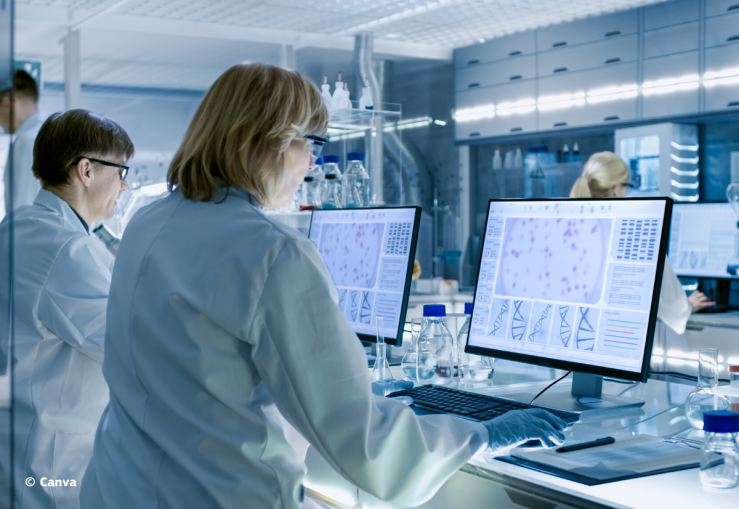Janny van den Eijnden-van Raaij, the managing director of hDMT (Institute for Human Organ and Disease Model Technologies) tells us more about how Organ-on-Chip technology can mimic human physiology and the project ORCHID (ORgan-on-Chip In Development)funded by the Future and Emerging Technologies (FET) program.
What is the problem that ORCHID tackles? What is the solution?
Despite continuing new drug discoveries, a major healthcare problem is that there are still no drugs for many diseases, existing drugs do not work in all patients and side effects of drugs are often so severe that they are a leading cause of morbidity. One of the most important reasons for this is that conventional animal models used for research, and cell cultures (even when human) do not mimic the human body. In particular, the human heart, immune system, brain and reproductive system are completely different from those in animals. Aside from the limited predictivity for humans, animal experiments raise ethical issues, increasing societal and political pressure to reduce their number. This requires new ways to improve drug development and identify effective, possibly personalized treatments for patients.
Organ-on-Chip technology might contribute to solving these problems, especially when based on human cells, since they mimic human physiology much more closely than standard cell cultures on plastic substrates. In principle, Organs-on-Chips can represent human tissues and organs of healthy individuals or patients under normal or pathological conditions like those in the human body. The EU FET-Open project ORCHID , initiated by the Dutch Organ-on-Chip consortium hDMT, aimed to help Organs-on-Chips to move from the laboratory into real-life medical care.
How revolutionary is the outcome of ORCHID?
A unique outcome of ORCHID is the foundation of a European community on Organ-on-Chip technology. This was achieved by bringing together many key European players in this field and strengthening this community by establishing the European Organ-on-Chip Society (EUROoCS) in 2018. This is the first sustainable (not finance driven) infrastructure for Organ-on-Chip technology established to date.
EUROoCS is meant to be a forum for information and contact exchange among experts, development of end user guidelines and the formation of training networks. The ORCHID project provided an overview of the state-of-the-art and identified needs and challenges of Organ-on-Chip technology. This formed the basis for the development of future strategy in the form of a European Organ-on-Chip roadmap. As a follow-up to ORCHID, EUROoCS will facilitate the use of Organs-on-Chips in practice by stimulating ongoing dialogue between developers, end users and regulators.
What is the benefit of this technology and how can you assess this benefit?
For healthcare, Organ-on-Chip technology can be of benefit at three levels:
- For drug development: faster identification of effective drugs and drug repurposing.
- For patients: potentially personalized medicine by testing drugs on the patient’s own Organ-on-Chip. The hope is that this will eventually lead to more effective treatments, fewer negative side effects, fewer treatment failures, better prediction of disease onset.
- For society: better, faster and cheaper health care because of better outcomes of drug treatment and fewer drug failures and reduction or refinement of animal experiments. The overall result could be a better quality of life at lower cost.
How do you plan to communicate in order to make people understand what this technology can actually achieve?
The EUROoCS website is a platform that provides information for those interested in Organ-on-Chip technology, but in particular stimulates exchange and collaboration between academic and industrial partners or other stakeholders including regulators, clinicians and patient associations. Dissemination to the general public is already being achieved by social media or during global events and special meetings with children and high school students, to create awareness about the technology among potential next generation Organ-on-Chip researchers. In addition, evidence-based and easy to understand information about Organs-on-Chip is being disseminated via TV and You Tube channels. EUROoCS is coordinating the dissemination and communication activities such that expectations for Organ-on-Chip are realistically managed. EUROoCS will enable transparent communication with the general public on the use and potential impact of Organ-on-Chip technology, including ethical aspects.
Background information
ORCHID was selected for funding by FET Open Coordination and Support Actions (CSA) in 2017. FET Open and FET Proactive are now part of the Enhanced European Innovation Council (EIC) Pilot (specifically the Pathfinder), the new home for deep-tech research and innovation in Horizon 2020, the EU funding programme for research and innovation.
Discover the full interview here.

DISCLAIMER: This information is provided in the interest of knowledge sharing and should not be interpreted as the official view of the European Commission, or any other organisation.

